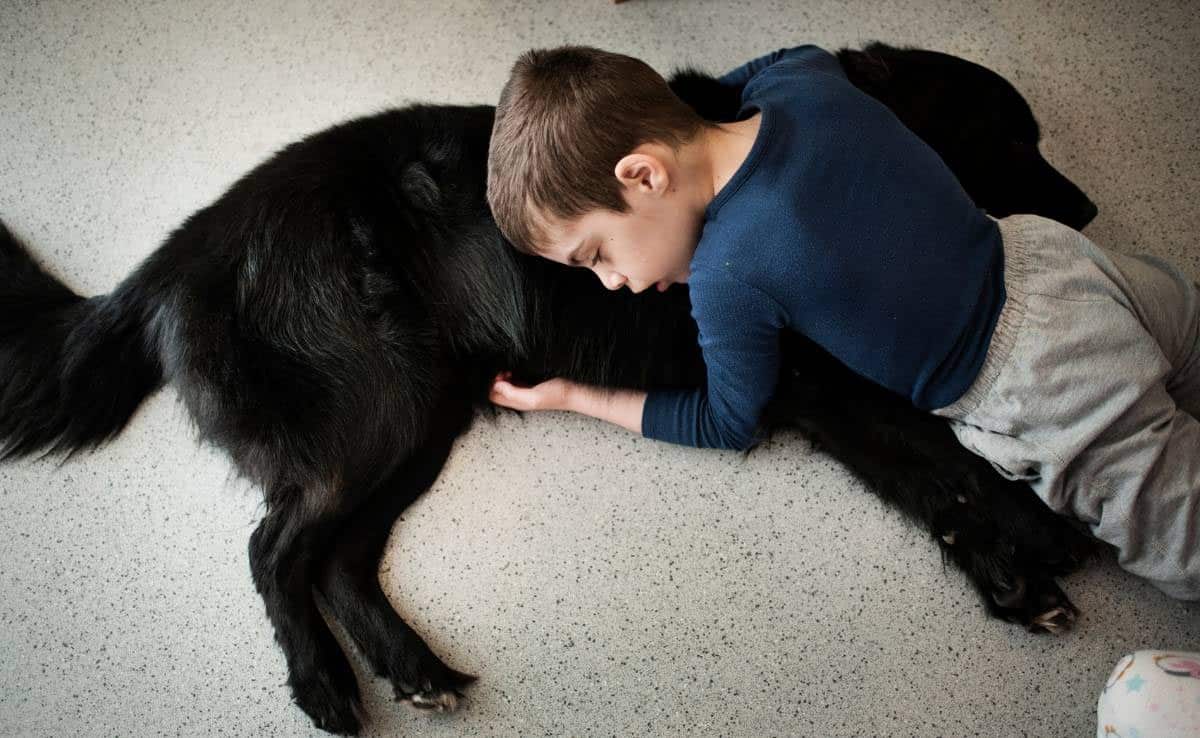When you purchase through links on our site, we may earn a commission. Here’s how it works.

Dogs and humans share many of the same congenital disorders and genetic diseases such as heart defects, epilepsy, hip dysplasia, many types of cancer, hemophilia, cataracts, dwarfism, and others. A fairly common congenital disorder in humans is Down syndrome, so you may be wondering if our canine companions can have it too. We’ll shed light on this chromosomal abnormality and if it affects dogs.
What Is Down Syndrome?
Down syndrome is a congenital condition in which a person is born with an extra chromosome. Chromosomes are structures within a cell’s nucleus that contain our genes. They determine how the body forms and grows during pregnancy and after birth. Each cell’s nucleus typically contains 23 pairs of chromosomes, but babies with Down syndrome have a partial or full extra copy of chromosome 21.
This extra chromosome changes how a baby’s body and brain normally develop, which can cause certain physical abnormalities and mental challenges. An estimated one in 700 babies in the U.S. are born with Down syndrome, according to the Centers for Disease Control (CDC). While every case differs, some common characteristics include:
- Mild to moderate intellectual impairment
- Shorter in height
- Poor muscle tone or loose joints
- A tongue that tends to stick out of the mouth
- A flattened face
- Almond-shaped eyes that slant upward
- A short neck
- Small hands and feet
- Eye or hearing problems
Can Dogs Have Down Syndrome?
No, Down syndrome isn’t a recognized condition in dogs, although it’s a pretty common misconception that dogs and many other mammals can have Down syndrome. Similar chromosomal abnormalities have only been found in primates like chimps and apes. But there’s no research to confirm that dogs can have Down syndrome.
Plus, while dogs and humans share many similar genetic traits, chromosomes aren’t one of them. Humans normally have 23 pairs of chromosomes, but dogs have 39 pairs. Down syndrome results from a copy of chromosome 21 in humans. But a copy of chromosome 21 in dogs would likely produce different effects.
How To Tell If Your Dog Has Down Syndrome-Like Symptoms?
Although our furry friends don’t technically get Down syndrome, some congenital, developmental, or genetic conditions in dogs can exhibit characteristics that resemble Down syndrome. If you notice these signs in your pup, you should contact your veterinarian to help diagnose any potential health concerns.
- Slow or stunted growth
- Short limbs
- Mental delays or cognitive dysfunction
- Abnormal facial features
- Large, protruding tongue
- Eye or hearing problems
- Poor muscle tone
- Delayed tooth growth
What Conditions Can Be Confused With Down Syndrome In Dogs?
The most common conditions that cause Down syndrome-like signs in dogs (and most predisposed breeds) include:
- Congenital hypothyroidism (Rat Terriers, Toy Fox Terriers, Wire Fox Terriers, and Giant Schnauzers)
- Pituitary dwarfism (German Shepherds)
- Congenital hydrocephalus (Boston Terriers, Chihuahuas, English Bulldogs, Malteses, Pugs, Pekingese, and Yorkshire Terriers)
- Portosystemic shunt (Beagles, Cairn Terriers, Irish Wolfhounds, Old English Sheepdogs, and Yorkshire Terriers)
Wondering If Your Dog Has Any Genetic Health Risks?
Although not all genetic conditions are hereditary (only 1% of Down syndrome cases are hereditary), many do pass from parents to offspring in both dogs and humans. And in dogs, genetic conditions are also known to affect some breeds more than others. If you’re concerned your canine companion could have a genetic condition, you may want to consider getting your dog’s DNA tested.
The best at-home dog DNA test kits screen for more than 200 canine genetic conditions to see if your dog is at a higher risk for developing certain diseases. Results can help you, and your vet develop a better health plan for your pup’s future. Another plus, you can discover your dog’s breed makeup if you have a mixed breed dog.
Tagged With: Mental Health

